








The AI Ready and Equitable Atlas for Diabetes Insights program (AI-READI) is funded by the National Institutes of Health (NIH) through the Bridge to Artificial Intelligence (Bridge2AI) program, a large trans-NIH initiative to generate new datasets for advancing artificial intelligence (AI). One component of AI-READI is the Skills and Workforce Development Module, which includes the development of a yearlong mentored research internship program aimed at expanding the future workforce at the intersection of data science/AI and the biomedical sciences and clinical research.
This internship program will be centered on developing skills and providing early exposure to AI, data science, and research, as well as the opportunity to gain exposure to faculty with expertise in AI and biomedical, clinical, and behavioral research. The program will include direct mentorship for a cohort of interns from AI-READI investigators/faculty mentors, as well as opportunities for career development. The program will correspond with an academic year timeline and will include an in-person two-week bootcamp at the University of California San Diego (UC San Diego) in the summer. After bootcamp, interns will work on a mentored research project related to AI-READI at sites across the country under the mentorship of AI-READI faculty mentors, while also engaging in a didactic curriculum conducted throughout the year. A year-end research symposium event will be held, which will allow interns to present their projects as well as provide an opportunity to interact with other interns and faculty members.
This is a paid internship, with monthly stipends ranging from about $2200 per month for predoctoral interns to $4500-$5500 per month for post-doctoral interns.
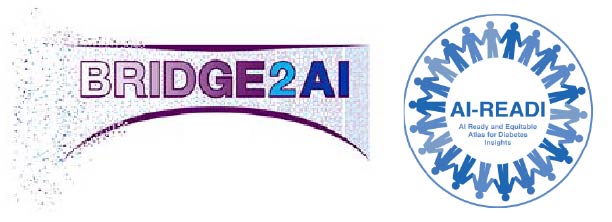
Intern projects can span a wide range of areas. Pairings with research mentors will be made based on the intern’s area(s) of interest and career goals. Projects may involve direct analyses of the data generated by the overall AI-READI project (which involves multi-modal data collection from a diverse group of individuals with diabetes), developing tools for assessing or analyzing data, or advancing data standards related to a wide range of involved data types (e.g., electronic health records, wearables).
In order to apply to the AI-READI Program applicants must fulfill the following requirements:
The AI-READI Internship Program is multi-institutional and includes faculty from a wide array of institutions. Lead faculty are from the UC San Diego, but teaching faculty and research mentors will be derived from the entire AI-READI team, which includes the University of Washington, the University of Alabama at Birmingham, Stanford University, Johns Hopkins University, and Oregon Health and Science University. All faculty members included in the program have had extensive experience in training and mentorship and represent multiple disciplines relevant to AI, data science, and clinical domains.

Sally Baxter, MD, MSc
(Principal Investigator / Program Director)
Assistant Professor
Division Chief for Ophthalmology Informatics and Data Science
Shiley Eye Institute at UC San Diego
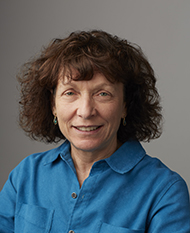
Linda M. Zangwill, PhD
(Co-Principal Investigator / Program Director)
Professor of Ophthalmology
Research Director, Hamilton Glaucoma Center,
Data Coordinating Center
Shiley Eye Institute at UC San Diego
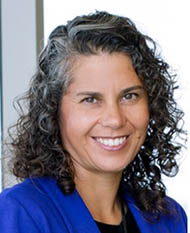
Virginia de Sa, PhD
Professor in the Department of Cognitive Science,
the Halıcıoğlu Data Science Institute, and the
Neurosciences Graduate Program
Halıcıoğlu Data Science Institute Associate Director
UC San Diego

Garrison Cottrell, PhD
Professor in the Department of Cognitive Science,
UC San Diego
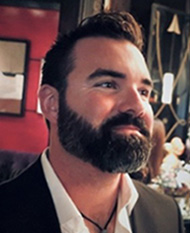
Bradley Voytek, PhD
Associate Professor in the Department of Cognitive Science,
the Halıcıoğlu Data Science Institute, and the
Neurosciences Graduate Program
UC San Diego
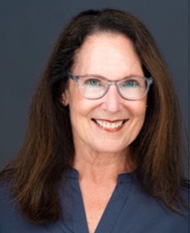
Camille Nebeker, MS, EdD
Director, UC San Diego Research Ethics Program; Associate Professor, Herbert Wertheim School of Public Health and Human Longevity Science and UCSD Design Lab; Director, ReCODE Health

Samantha Hurst, PhD
Project Scientist
Herbert Wertheim School of Public Health & Human Longevity Science
UC San Diego
I am very grateful and honored to be an Al-READI intern and NIH Bridge2 Al scholar. This has been a great year and experience, I learned a lot during this internship about how to conduct research, and collaborate in teams (team science). The educational curriculum and lectures were great organized and I learned a lot through them.
I also had an opportunity to work with renowned mentors, collaborate on interesting projects and learn from multidisciplinary teams. I am very grateful for this experience and I look forward to continue my work on AI/ML applications in ophthalmology research, digital health and to continue our collaborations in the future.
The collegiality from faculty and colleagues was amazing. There was always an opportunity to learn from others.
Additionally, it provided me the chance to be proficient in python coding and understand deep learning which advanced my soft skillsets.
This internship has been an amazing experience that has changed the trajectory of my career. It has led to begin working in clinical research full time.
If not for this program I would not have had the exposure to clinical research as I now do and would not be able to continue to explore this profession.
I have personally advocated for this internship program at different centers, and I am grateful for all the opportunities and everything that have learned through this program. I will continue to be an AI-READI advocate.
Friendly faculty, fun and informative lectures, extremely helpful for beginners in Al research.
Thank you for organizing such an amazing boot camp! The hand on sessions were definitely my favorite. Some of the lectures got a little too technical and were hard to follow but the professors did a good job conveying the main points.
Every time I read a paper on Al/ML, the terms softmax, ReLu, etc don't sound unfamiliar anymore. Thank you so much!


Our internship program is part of a broader Training Workgroup associated with the NIH Bridge2AI Initiative that includes other training programs as well. The links include additional resources such as lectures on Artificial Intelligence (AI) and Machine Learning (ML) in biomedical research and education about ethical principles.
please email UC San Diego program coordinator Victoria Patronilo
The overall objective of the NEI Mentored Clinical Scientist Development Program Award at UCSD is to develop outstanding clinician scientists to successfully compete at the national level for NIH grants and emerge as leaders within academic Ophthalmology. Through this institutional career development award, we will mentor clinician scientists toward independent academic appointments in ophthalmology.
Shira L. Robbins, MD, Named Anne F. Ratner Chair in Pediatric Ophthalmology
Review of Retinopathy of Prematurity in the Anti-VEGF Era
UC San Diego’s Mobile Health Units Deliver Care and Bring Cutting-Edge Research to Local Communities
Fighting Vision Loss: The PRPH2 Mutation Research Project
A Clearer Future: How the EyeMobile Brings Vision to Children Across San Diego
VIEW MOREThe information contained in this online site is intended to provide accurate and helpful health information for the general public. It is made available with the understanding that the author and publisher are not engaged in rendering medical, health, psychological, or any other kind of personal professional services on this site. The information should not be considered complete and does not cover all diseases, ailments, physical conditions or their treatment. It should not be used in place of a call or visit to a medical, health or other competent professional, who should be consulted before adopting any of the suggestions in this site or drawing inferences from it.
The information about drugs contained on this site is general in nature. It does not cover all possible uses, actions, precautions, side effects, or interactions of the medicines mentioned, nor is the information intended as medical advice for individual problems or for making an evaluation as to the risks and benefits of taking a particular drug.
The operator(s) of this site, and the publisher, specifically disclaim all responsibility for any liability, loss or risk, personal or otherwise, which is incurred as a consequence, directly or indirectly, of the use and application of any of the material on this site.
Click Here To Accept